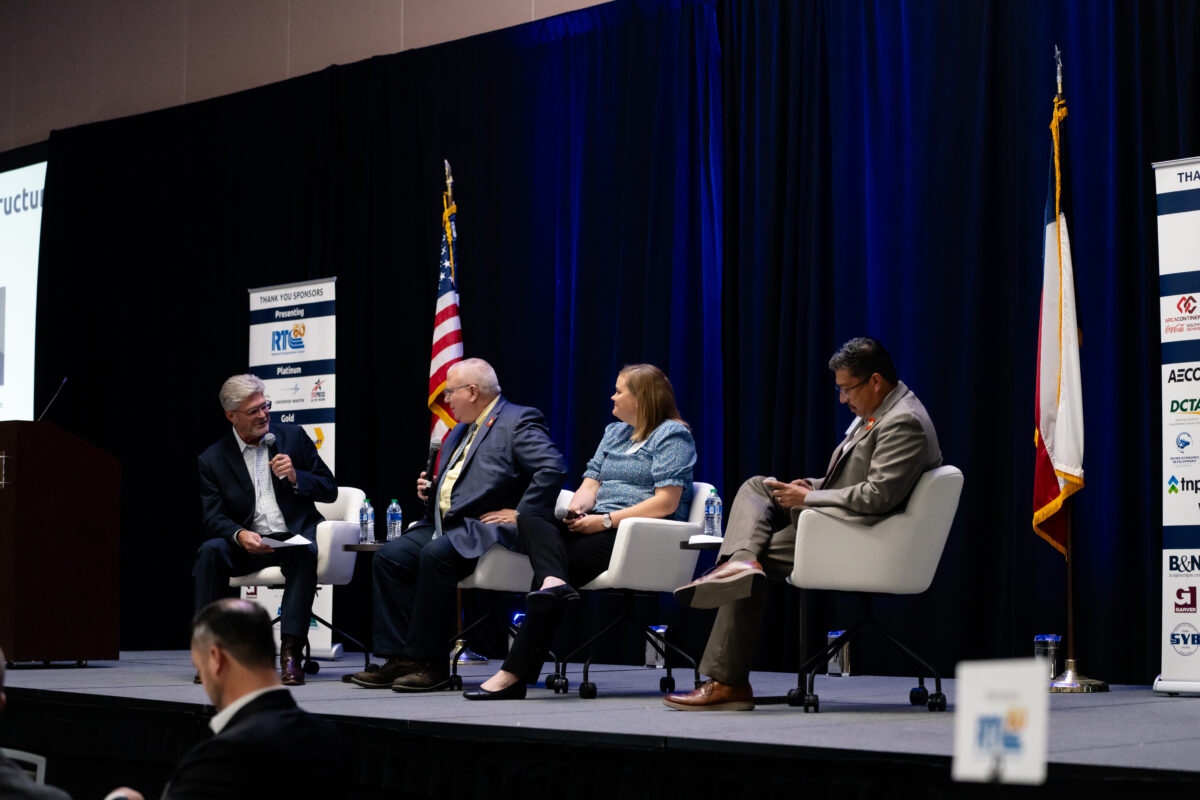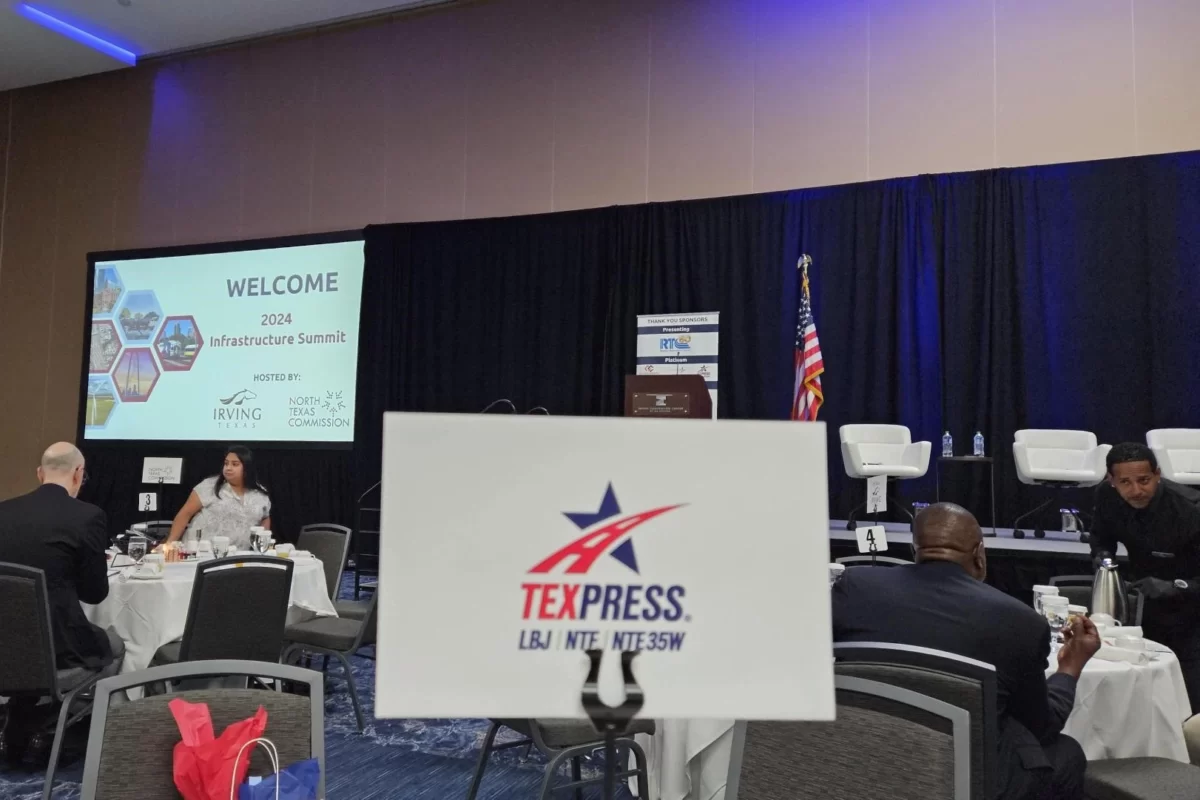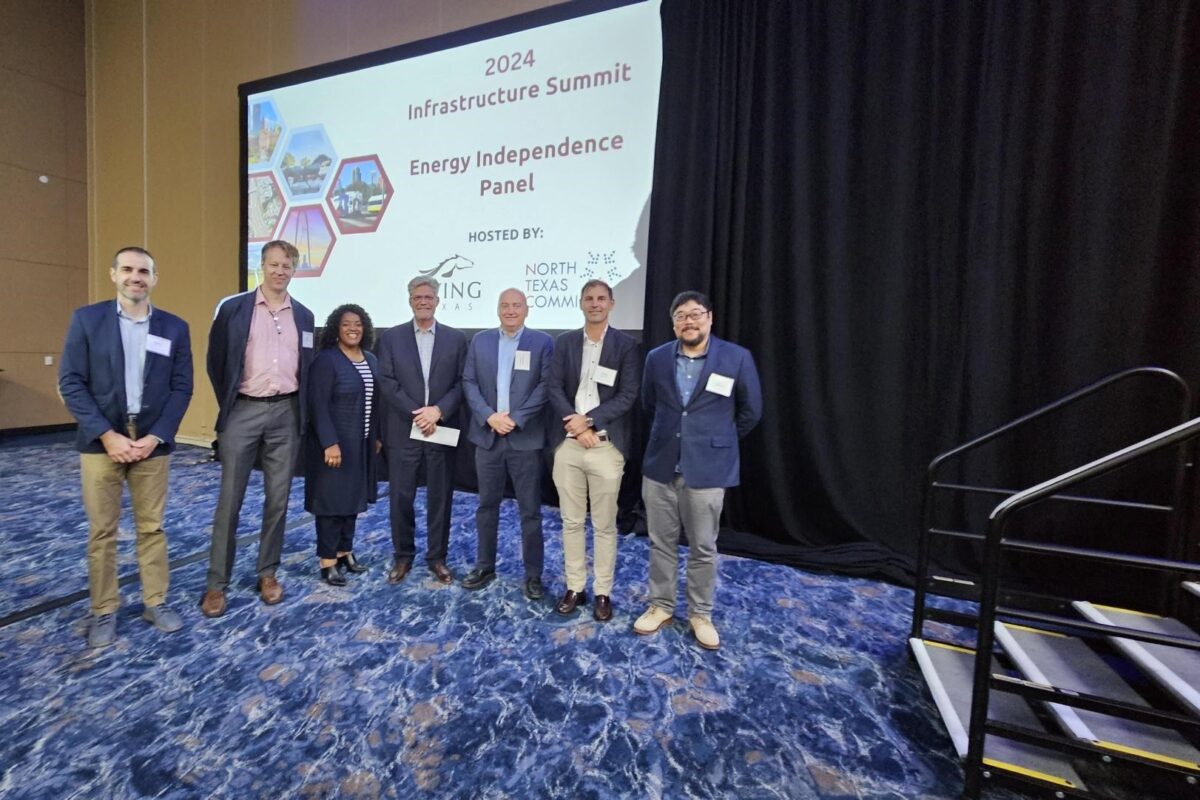
https://www.ntc-dfw.org/infrastructure-summit
The LBJ/NTE/NTE 35W TEXpress Lanes were one of the main sponsors for this year’s 2024 Infrastructure Summit, organized by the city of Irving and the North Texas Commission. The day-and-a-half event is dedicated to addressing crucial infrastructure issues vital for sustaining the region’s growth.
Executives from the LBJ/NTE/NTE 35W TEXpress Lanes attended the summit, including Robert Hinkle, the Director of Corporate Affairs, who moderated the Highway Infrastructure panel. He engaged in discussions with TXDOT peers on advancing critical projects in North Texas.
Hinkle highlighted the success of the North Tarrant Express project, the first successful public-private partnership highway project in Texas. This collaborative effort involved the Texas Department of Transportation, the North Central Texas Council of Governments, and local and regional officials. Opened in October 2014, it remains one of the most successful P3 projects, with more than $220 million returned to TxDOT for other infrastructure works. Last year, 25 million trips were made with an average of 220,000 vehicles traveling across the general and managed lanes each day. Currently, traffic volumes have surpassed both pre-construction and pre-pandemic levels. Despite this increase, congestion relief efforts have resulted in significant time savings, amounting to 320K hours over the past year.
The North Tarrant Express Project has undoubtedly played a significant role in the economic development of North Texas. It has been a key factor in reducing congestion and enhancing mobility within the region.
The project is nearing its 10-year anniversary this October, a milestone that aligns with the current expansion construction efforts led by Ferrovial’s North Tarrant Infrastructure. The NTE Capacity Improvement Project, with an investment of $414 million, will introduce an additional general-purpose lane and a managed lane in each direction at no cost to drivers. Additionally, the project will reconfigure various ramps and connectors and include a new pedestrian bridge.
The entirety of the project’s funding will come from toll revenues generated by the managed lanes, ensuring that no state Department of Transportation funds or public money are allocated for construction costs. To reduce the impact on daily traffic, most construction activities are scheduled to occur overnight. The project is expected to span 42 months, with an early completion target set for 2027.


